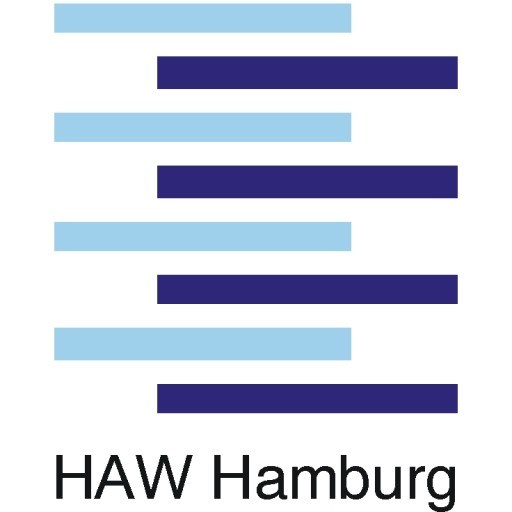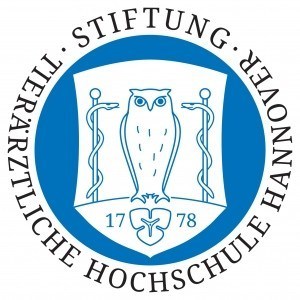Photos of university / #HAWHamburg
The Bachelor of Science in Renewable Energy Systems — Environmental and Process Engineering at Hamburg University of Applied Sciences offers a comprehensive education designed to prepare students for the rapidly evolving field of renewable energy and sustainable environmental management. This program combines theoretical knowledge with practical skills, enabling graduates to develop, implement, and optimize renewable energy technologies and environmentally friendly processes. The curriculum covers a broad spectrum of subjects, including thermodynamics, fluid mechanics, electrical engineering, environmental sciences, process engineering, and renewable energy systems such as solar, wind, biomass, and hydropower. Students gain a solid understanding of the physical principles underlying renewable energy technologies and learn how to design, analyze, and operate sustainable systems. In addition to technical expertise, the program emphasizes environmental protection, resource efficiency, and sustainable development, equipping students to address global challenges related to energy supply and environmental preservation. Practical training plays a vital role, with laboratory work, project assignments, and internships providing hands-on experience in designing and managing renewable energy installations and environmental processes. The program also fosters interdisciplinary collaboration, critical thinking, and problem-solving abilities, preparing graduates for roles in industry, research, and consultancy. Graduates of this program are well-positioned to contribute to the transition towards a sustainable energy future, working on innovative solutions to reduce carbon emissions, improve energy efficiency, and protect natural environments. The degree program aligns with current industry demands and promotes continuous learning and professional development in the dynamic renewable energy sector. Completion of this program opens pathways to careers in renewable energy project management, environmental consulting, engineering design, and policy development, making it an ideal choice for students passionate about making a positive impact on the planet through sustainable engineering solutions.
Educational organisation
The first two semesters are made up of lectures in small groups, seminars and lab work. Students will complete individual projects on different topics. Set research topics will be completed in the labs.The Master's thesis is written in the third semester; in most cases in industry, with renewable energy-related companies.
Each semester is awarded a total of 30 credit points.
Study abroad unit(s)
Cooperation with universities abroad is planned.Forms of assessment
Written examinations, seminar papers, reports, oral examinations, presentationsCourse objectives
This Master's programme qualifies students to develop, plan, design, execute, operate and service renewable energy systems, in particular in the fields of solar thermal systems, photovoltaic systems, biogas, biomass to liquid and wind energy systems.The focus is on system engineering. Students are trained to work in industry, planning offices and organisations in the fields of engineering, consulting and R&D.
Language requirements
All applicants whose first language is not English must provide one of the following language certificates:TOEFL min. score: 87 (Internet-based)
IELTS min. score: band 5.5
CAE (Cambridge Certificate in Advanced English) min. score: C
CPE (Cambridge Certificate in Proficiency in English) min. score: C
FCE (Cambridge First Certificate) min. score: C
Lectures are in English.
However, German A2 is a mandatory part of the application (please provide proof of this in the form of a certificate) as lab work with technicians etc. may require a basic knowledge of German.
The only accepted German language certificate is from Goethe Institute, the "Start Deutsch 2" certificate at level A2 (http://www.goethe.de/lrn/prj/pba/bes/sd2/enindex.htm).
Academic requirements
- Bachelor's degree (or equivalent) in environmental engineering, process engineering or similar field, with the academic grade equivalent to the German grade 2.5
- Graduate Record Examination (GRE) for applicants who do not have a Bachelor's qualification from an EU country
- Proof of English (if not first language) - see the language requirements
Students who completed their school education outside Germany must have their certificates approved by uni-assist (http://www.uni-assist.de) BEFORE applying to the HAW Hamburg. The pre-registration documentation (VPD) from uni-assist must be sent with the application forms, etc., when applying to the HAW Hamburg. Please be advised that this process can take six to eight weeks, so please apply early.
For more information, see: http://www.haw-hamburg.de/international-master.
Enrolment fees
Semester contribution of approx. 318 EUR (as of June 2016). This fee includes a semester ticket for unlimited travel on Hamburg's public transport system.Costs of living
Hamburg is a relatively expensive city. Depending on your lifestyle, you should expect living costs of 700 to 900 EUR for rent, food, and other expenses. In addition, there will be costs for materials, which (depending on the degree programme) will range between 125 and 250 EUR per semester.Job opportunities
You should plan to be able to study in Hamburg without having to work part-time. If you are coming on a visa, you will have to provide proof of your finances (697 EUR/month).EU students can work 20 hours/week.
International students from non-EU countries are only permitted to work 120 days (240 half days) in one calendar year, and part-time job opportunities are limited, especially, for students who do not speak German. It is unlikely that we will be able to offer you a job on campus.
Funding opportunities within the university
The university offers scholarships for academic excellence and for the final thesis semester. The scholarships are approx. 300 EUR per month for one semester.http://www.haw-hamburg.de/english/international-degree-students/tuition-fees-scholarships/master-scholarships.html
Arrival support
The International Office offers a buddy programme (weBuddy), and you will be sent information about this when you register to study at the university. This programme matches you with an older student who will help you to get settled and assist with administration issues, etc.There is also an orientation week at the beginning of the course. A professor in the department is the main course coordinator.
Services and support for international students
The International Office at Hamburg University of Applied Sciences offers support for international students once they have enrolled at the university. Additional academic support will be offered by professors directly in the department.Accommodation
It is becoming increasingly difficult to find accommodation in Hamburg, so please be aware that finding somewhere to live can take a while.The halls of residence in Hamburg are run by the Studierendenwerk Hamburg and offer affordable accommodation for students under the age of 30. Generally, students have their own rooms in an apartment that they share with other students - the bathroom and kitchen are shared. The monthly rent for a room in a student hall of residence starts at roughly 250 EUR (including heating, water, and electricity). At the earliest, new students can apply three months before the start of their degree programme. Further information on the halls of residence as well as the application form can be found on the Studierendenwerk Hamburg website: http://www.studierendenwerk-hamburg.de/studierendenwerk/en/wohnen/aktuelle_infos/.
Further information on accommodation can be found on the university's website:
https://www.haw-hamburg.de/english/international-degree-students/campus-life/accommodation.html.









